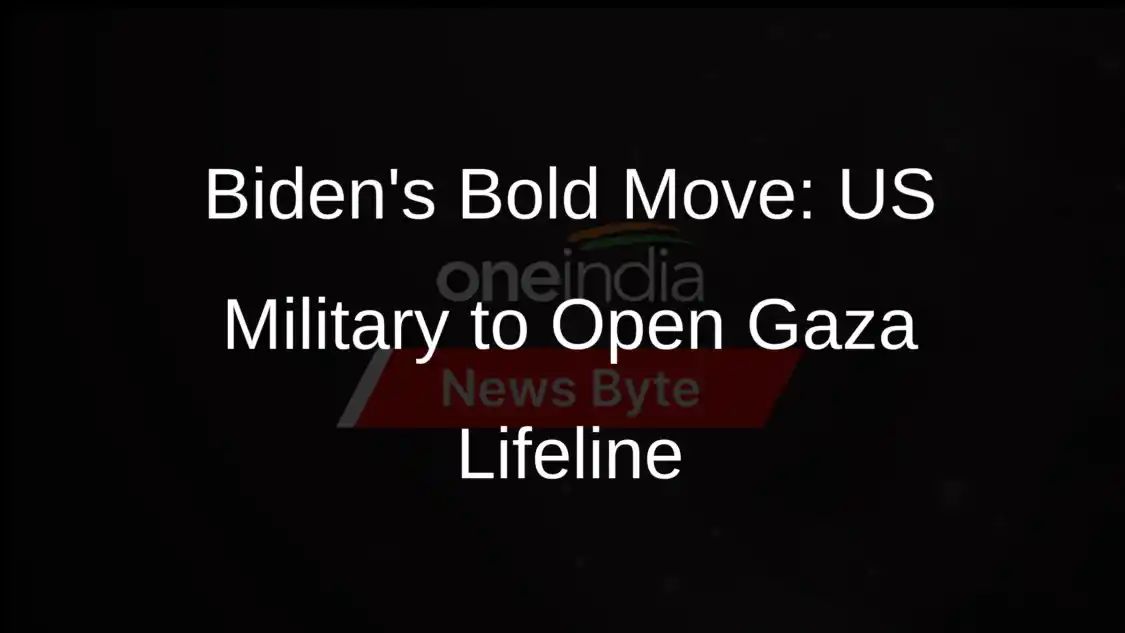Biden Steps Up US Involvement: Military to Aid Gaza Amidst Deepening Conflict
The announcement signals a deepening U.S. involvement in the escalating tensions and conflicts in the region.
Addressing Humanitarian Crisis in Gaza
The decision to set up a temporary port stems from the dire humanitarian situation in Gaza. Five months of war and strict Israeli control of land borders have led to a widening humanitarian crisis. Many Gazans are struggling to find food, with some resorting to eating animal fodder to survive. The situation is particularly dire in the northern part of Gaza, where one in six children under the age of two suffers from acute malnutrition.
U.S. Military Involvement
The planned operation will involve the U.S. military in setting up the pier, but it will not require American troops on the ground. The U.S. officials involved in the planning emphasized that the military has unique capabilities and can operate from just offshore. The pier is expected to take several weeks to become operational.
Options for Aid Delivery
One of the options being considered is the use of a floating pier called a JLOTS (Joint Logistics-Over-the-Shore). This large floating pier allows supplies to be delivered without the need for a fixed port, eliminating the requirement for troops on a dock on shore. Ships can sail to the pier, which is secured by anchors, and dock there.
International Collaboration
The U.S. is working closely with international partners, including Cyprus, the European Union, and other countries, to facilitate the opening of a maritime sea route for aid delivery. Cypriot President Nikos Christodoulides has offered the use of his country’s port in Larnaca for aid deliveries to Gaza. European Union Commission Chief Ursula von der Leyen is scheduled to visit Larnaca to inspect the installations.
Challenges in Aid Delivery
Aid groups have faced significant challenges in delivering supplies to Gaza due to the ongoing hostilities, the difficulty of coordinating with the Israeli military, and the breakdown of public order. The isolated north of Gaza poses additional challenges in aid delivery.
Frustration with Israel
Despite being a vital partner to Israel’s military offensive, the Biden administration has grown increasingly frustrated with Israeli Prime Minister Benjamin Netanyahu’s seeming disregard for U.S. pressure to reduce civilian deaths and allow humanitarian aid. The U.S. announcement of a temporary port and wartime sea route is seen as a workaround to the challenges posed by Israel’s restrictions on overland aid deliveries.
Criticism of U.S. Approach
Critics argue that the U.S. announcement is an expensive and inefficient solution to a problem that has other viable solutions. They believe that the Biden administration is unwilling to use U.S. leverage to influence Israel’s conduct of the war and ensure the protection of civilians.
The establishment of a temporary port off the Gaza coast reflects the Biden administration’s efforts to address the humanitarian crisis in Gaza. However, the challenges of delivering aid and the ongoing tensions between the U.S. and Israel continue to complicate the situation.




